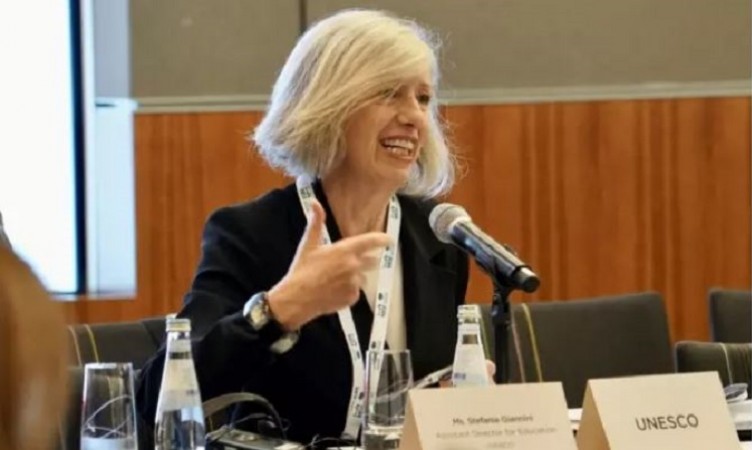
During the 11th Education Innovation Summit (WISE) on November 29, 2023, in Doha, Qatar, UNESCO and the Education Above All Foundation (EAA) jointly held two roundtable talks. These discussions focused on tackling weaknesses in higher education systems, promoting inclusivity, and highlighting the significance of fortifying these institutions to handle crises. A significant outcome was the introduction of the Joint Statement on Transforming Higher Education in Emergencies, pushing for practical actions and long-term solutions.
These discussions centered on addressing the vulnerabilities within higher education systems, advocating for inclusivity, and stressing the need to fortify these institutions against crises. One significant outcome was the introduction of the Joint Statement on Transforming Higher Education in Emergencies, urging the implementation of transformative measures and sustainable solutions.
This statement acknowledges the challenges faced by marginalized communities in accessing higher education. It emphasizes the necessity for a comprehensive approach to ensure inclusivity in higher education. Specifically, the Joint Statement urges nations to enhance policies and legislation, fortify data systems, integrate crisis considerations into their national higher education frameworks, and ensure fair inclusion of individuals affected by crises. It also calls upon the global community to support this initiative for a more resilient, inclusive, and fairer higher education system.
During a high-level roundtable session chaired by Ms. Stefania Giannini, UNESCO's Assistant Director-General for Education, Member States and implementation partners expressed commitments and endorsements for the Joint Statement. Simultaneously, a policy-level roundtable gathered key partners to reach a consensus on overcoming systemic barriers. These discussions highlighted the importance of recognizing prior learning and knowledge, stressing the establishment of suitable recognition mechanisms at the national level, including initiatives like the UNESCO Qualifications Passport. These actions aim to ensure the sustainability of solutions and their acceptance by relevant national authorities.
Representatives from various Ministerial and high-level bodies, including education ministries from Qatar, Zambia, Iraq, Kurdistan, Uganda, Kenya, and international organizations like the Council of Europe, World Bank, Asian Development Bank, UNHCR, and educational institutions such as Sciences Po and the University of Pennsylvania, attended the roundtables.
Looking ahead to the 2030 agenda, UNESCO plans to collaborate with champion Member States, partners, and higher education institutions. The aim is to collectively design a roadmap for implementing the Joint Statement, outlining practical steps towards achieving the outlined goals.
This Day in History: UNESCO Recognizes Vietnamese Art Form Đờn Ca Tài Tử